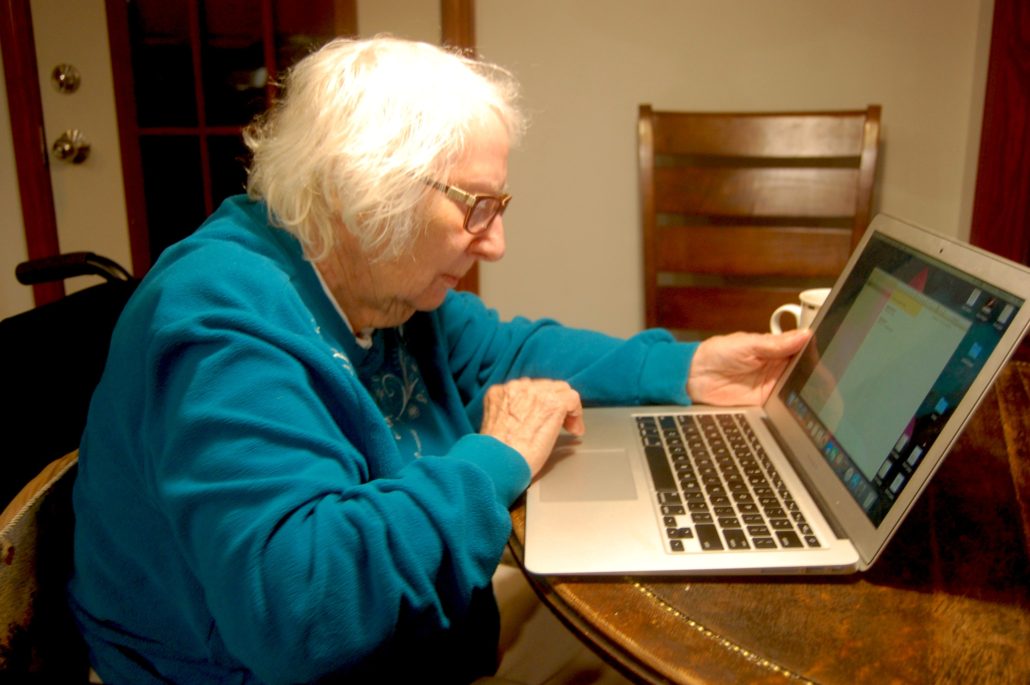Kingwell (2000) states that the only way citizens can be involved in their community is when they venture outside of the house and into the public. However, this view of community inclusion excludes older adults who are faced with physical, social, or financial constraints.
My MA thesis project will therefore attempt to answer several questions, the first being, how can computers and tablets assist older adults with community engagement? Information Communication Technologies (ICTs) have been found to eliminate barriers to accessing information. This evidently leads to a sense of empowerment (Nimrod, 2009), and improves the quality of life in older adulthood (Boz & Karatas, 2015). Furthermore, computers and tablets as communication mediums can provide social interaction opportunities for older adults, which could prevent them from social isolation (WHOQoL, 1998). The second question to be addressed in this study asks, can online volunteering foster community engagement? Volunteering has been linked to various responsibilities that contribute to community involvement (Arai, 2000), which could also assist older adults with community development.
This study will be investigated through the perspective of Therapeutic Recreation (TR) practice. The purpose of this practice is to encourage individuals to seek meaningful and autonomous experiences within their community. Older adults, who are unable to physically attend support groups or leisure activities however, may find it easier to have their needs met by participating in community activities (Nimrod, 2009) using a computer or tablet device. This project is therefore exploring whether TR practitioners can provide older adults with the support and education required to participate in online community activities. Gaining a triangulation perspective on social isolation and community inclusion will provide a better understanding of how computers and tablets can enhance community engagement in older adulthood. This qualitative research study will therefore include five therapeutic recreation practitioners, five older adults living independently in the community, and two representatives from volunteer organizations. Grounded theory will be used to analyze the data allowing for systematic, yet flexible guidelines for the researcher to collect and construct theories ‘grounded’ in the data.
Researchers
Kelly Leonard, Concordia University
Committee
Dr. Shannon Hebblethwaite, Concordia University, Thesis Supervisor
Dr. Kim Sawchuk, Concordia University, Committee Member
Dr. Felice Yuen, Concordia University, Committee Member
Funding
ACT-SSHRC
Centre de Recherche et d’Expertise en Gérontologie Sociale (CREGES) Universitié de Montréal, Universitié McGill, UQAM, Research Project Grant
Ageing + Communication + Technologies Project (ACT) Concordia University, ACT Graz University Summer School Scholarship
Research Areas:
Critical Mediations
Project updates
Poster Presentation, INDI Research Day, Concordia University, March 16th, 2017 Conference Presentation, Canadian Therapeutic Recreation Association, May 26th, 2017 Master Thesis Defence, Concordia University, July 2017

